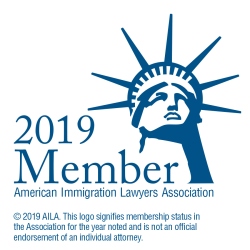Mehdi is brilliant. There is no other way to describe him. He works in an area of science that he cannot explain to a layperson. But apparently his research is important, because the United States government has spent hundreds of millions of dollars annually funding projects in which he has been involved.
Mehdi is from Iran. After making a name for himself in his home country, he was invited to study and research at two of the world’s most well-known research institutions in his field, traveling from one European country to another. Mehdi was then invited to join a university’s unique research institution in the United States, which was involved in an internationally-funded project.
This invitation came about ten years ago, before the current administration made it almost impossible for Iranians to get US visas. But even at that time, relations between the two countries were not good, and the visa process was difficult. Because there has not been a US embassy in Iran since1979, Iranians must travel to another country, normally Greece or Turkey, to apply for their visas. Mehdi made this trip and was granted a tourist visa, so that he could enter the United States and finalize his employment arrangements.
But when Mehdi’s expected supervisor reached out to his university’s HR department to proceed with the H-1B process that would authorize Mehdi’s employment, the HR department advised the supervisor that it could not do so. As an Iranian who had not been fully “vetted” by the US government, Mehdi was not allowed to work with the proprietary knowledge that the research involved.
Mehdi was devastated. He had left his job in Iran, planning to remain in the United States for several years, where his expertise would have enabled him to make significant contributions to the university’s research project, funded by the US Department of Energy.
The answer that would enable Mehdi to live and work in the United States was through an application for permanent residence in the National Interest Waiver category.
But there was a problem of timing. Mehdi’s authorized period of stay would be ending in a month. The regulations required that he either had to submit his application for permanent residence in the United States, before the month ended, or he had to leave the country and apply from abroad. Mehdi had recently endured the months-long application process that was required for his tourist visa. The application process for the permanent resident visa he would now need was even more complex, and would require him to be outside of the United States for over a year. So he had only a month to assemble and submit his application package.
This was an almost impossible task, as a National Interest Waiver application is highly complex, requiring reference letters not only from peers who can confirm the applicant’s education and employment history, but also from those who know the applicant only by reputation, and can attest to the applicant’s stature in the field. With the attorney’s guidance, the applicant reaches out to those who have cited his scholarly articles or mentioned his work in some other public forum, or else to near strangers who may have emailed the applicant, inquiring about some matter within the applicant’s area of expertise. The applicant must contact these peers to ask the favor of a reference letter, which often requires a number of false starts, as many people tend to be hesitant to offer this support, especially to someone they have known only briefly.
The applicant must also gather copies of his or her scholarly journal articles, evidence that he or she has spoken at professional conferences, and other evidence of prominence or exceptionality.
The National Interest Waiver applicant must also demonstrate that his or her work is of national importance. Since Mehdi’s research was in an area of science that is impossible for most laypeople to understand, this was quite a challenge. However, we were able to use the fact that the work received significant funding from the Department of Energy to show its national importance.
Our firm worked tirelessly with Mehdi over the course of the month to get agreements from his peers to write reference letters, assisting the peers with the letters as necessary, gathering and indexing the dozens of exhibits, and finally drafting two letters; Mehdi’s own letter describing his career trajectory as well as our firm’s letter highlighting the evidence. In the end, the application package used about a ream of paper, and we submitted it several days before Mehdi would have had to leave the country.
As I said, Mehdi is brilliant. His application was quickly approved, and he is now sharing his expertise with a United States research institution, while living the American dream.





